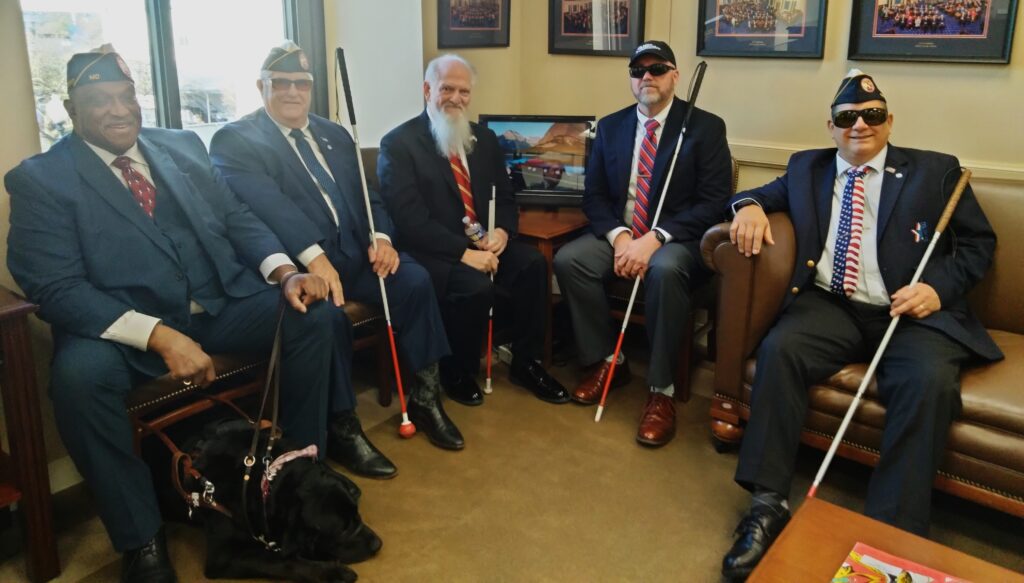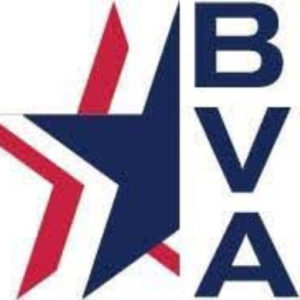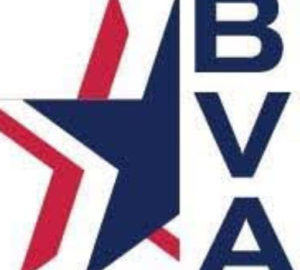
One month ago, the BVA Executive Committee traveled to Washington, DC, to meet with several members and staff of the House and Senate Committees on Veterans Affairs. They met personally with Senate Committee Chairman Jon Tester (D-MT) and Ranking Member Jerry Moran (R-KS). The series of meetings, supported by BVA’s annual testimony, have laid the groundwork for the Association’s efforts to generate action on behalf of blind and low vision veterans during the time remaining in the 118th Congress.
Since BVA’s founding, the Association has also represented veterans before the executive branch of government, which in most cases is the Department of Veterans Affairs (VA). During their recent trip, BVA’s Executive Committee members also met with key VA staff to discuss problems and concerns with specific VA programs and policies that do not require congressional action, such as access to contact information for Visual Impairment Services Team (VIST) Coordinators.
Our interactions on Capitol Hill and at VA Central Office are key to building relationships and gauging the attitudes of staff so that we can work together in continuing to improve the quality of life for blind and low vision veterans. Engaging Congress can create new opportunities for veterans as well as reinforce already enacted legislation. Engaging VA allows us to address the smaller problems unique to BVA as we assess our needs with those who are responsible for administering the care. All our points of contact within the legislative and executive branches of government are vital and play important roles in carrying out BVA’s government relations agenda.
In the intervening time since these meetings took place, BVA has already initiated follow-up discussions that build on the content of our meetings and further deepen our relationships. A top priority is the Veterans Accessibility Act, which would create a Federal Advisory Committee to oversee VA’s accessibility practices. Other priorities are the Major Richard Star Act, and the VETS Safe Travel Act.
This year, the months April through July constitute the peak activity time for Congress due to the upcoming November elections. As members of Congress become more focused on that latter subject, we will shift our attention more toward VA to better utilize BVA’s time and put our efforts to more productive use. An area of concern not previously mentioned here but in our testimony is VA’s practice of allowing optometrists to perform invasive eye procedures on veterans when that function should be left to educated, trained, and experienced ophthalmologists.
The remainder of 2024 will be very busy in Washington. We welcome the challenges ahead and are eager to represent the interests of all blind and low vision veterans wherever the needs exist.


